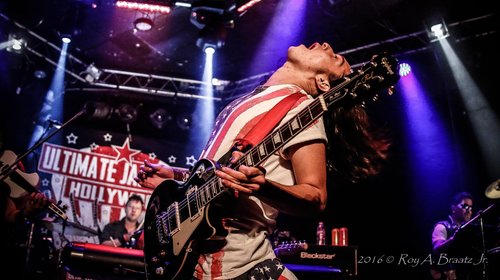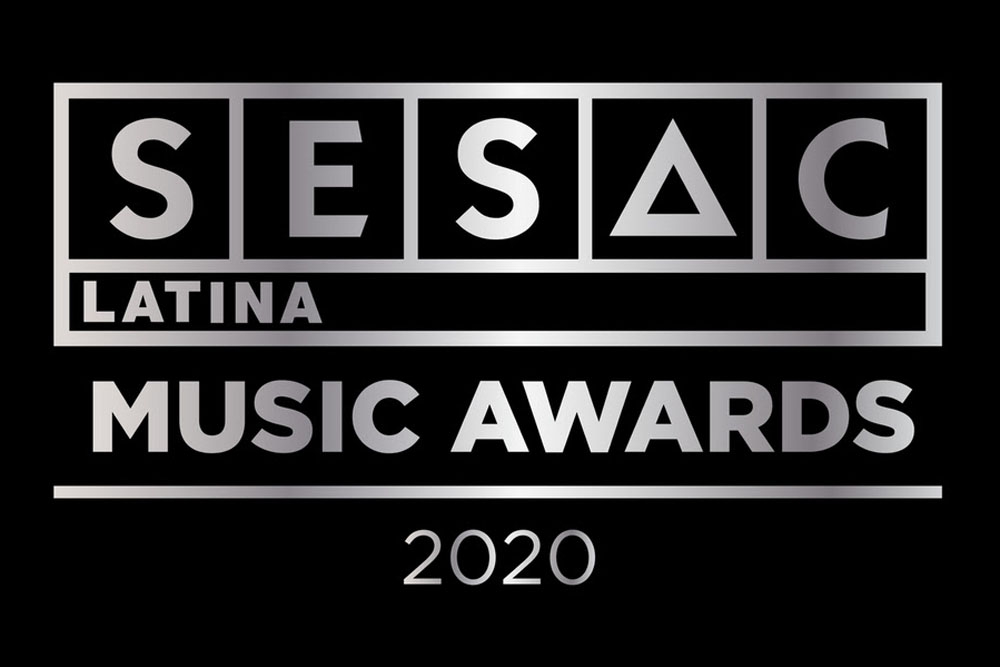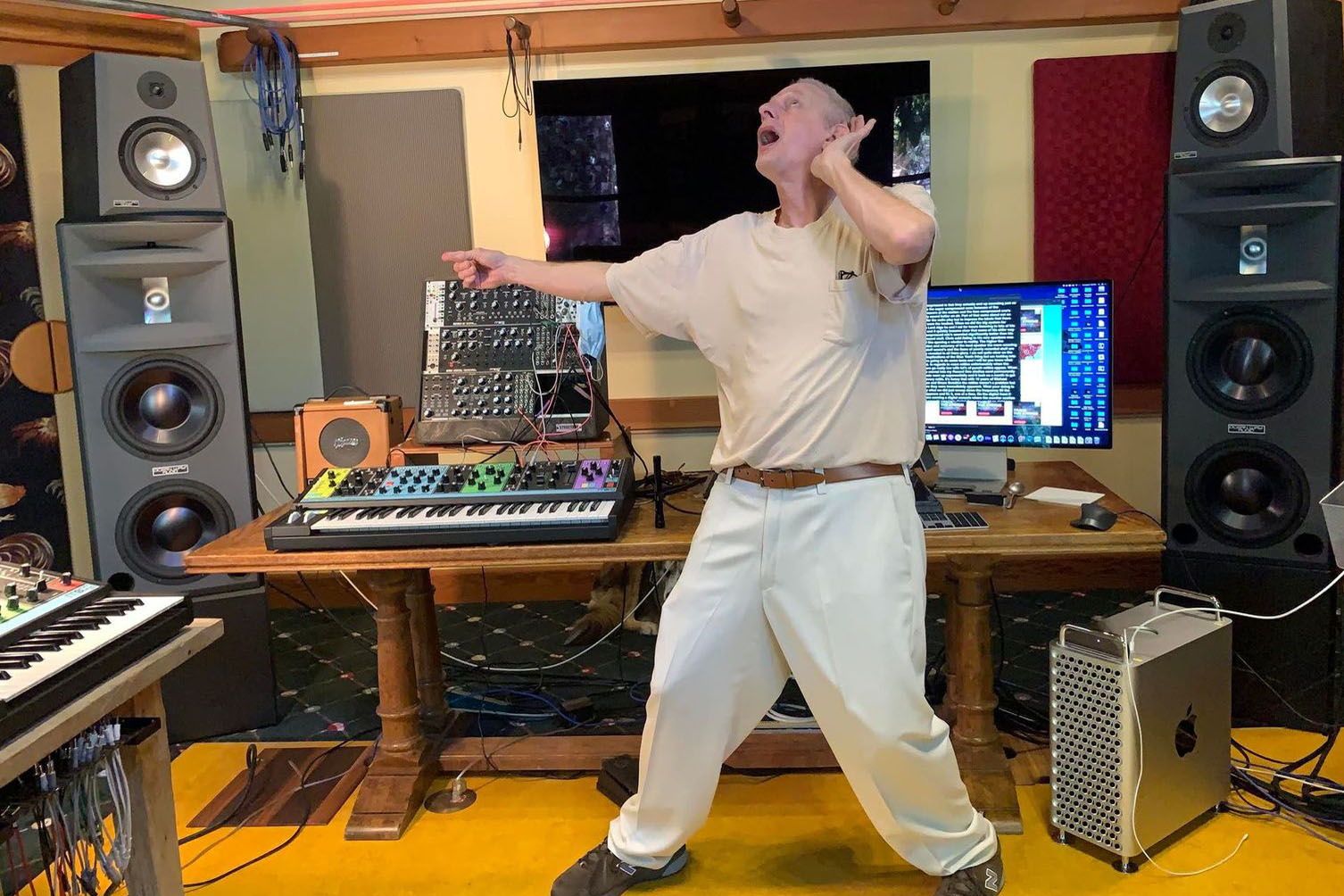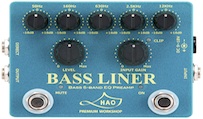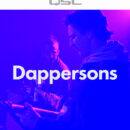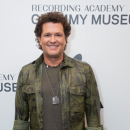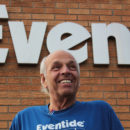Here and Now. It’s step one of any goal completed with greatness, yet often overlooked how important it is. The moment you wake up on the day of a performance, notice the skin on your hands. Eat your food slowly; taste the taste. Feel the wind on your face as well as the emotion it offers you. Promotional things, errands and all else should have been finished up the day prior. Now Is your time to be fully aware of yourself and your surroundings. Captivate yourself first and foremost. In the event of cabin decompression on an airplane, help yourself LIVE first.
“Every morning upon awakening, I experience a supreme pleasure: that of being Salvador Dalí, and I ask myself, wonderstruck, what prodigious thing will he do today, this Salvador Dalí.” -Salvador Dalí
Theme. This goes hand in hand with step one because you find out what intrigues you and embody it, which can help your persona come off much more lucid to your audience. Your theme, or brand, is everything from the clothes you wear to the mantra you speak. With clothing, crazy patterns (i.e. Van Halen) or dark colors (i.e. The Cure) will punctuate the message of your music to a large number of people all at once. Everyone watching you will be in the same boat of WHO you are right off the bat, not working too hard to figure out what they are experiencing, thus putting them in the palm of your hand as to how you want to make them feel that night.
Time and Preparation: Obvious but worth reiterating. I don’t need to tell you to make sure your gear, sound and musicality are up to par with your vision, but I must mention that preparation also means a bit of stage performance rehearsal, which can feel bizarre. Apply the hand gestures, facial expressions, high kicks, jumps, and especially band member interaction during rehearsal of the music. Which word in the song will make you point to an audience member?
Be specific: Of course you’ll jump at the big drop at the climax of the song; but how will your body look when you do it and how will you land? Will you keep jumping? For how long? Make movements symmetrical with the energy, flow and length of each song. If you will take an instrumental lead, step forward, but not without knowing exactly when you must start heading back to your original position so that you don’t "step” on the performance in any way.
Many confuse preparation as a killer of inspiration or spontaneity, but to the contrary it really creates the space for improvisation; if your canvas was without a frame, as vast as outer space, you may very well drift into oblivion. Have an outline, a sketch, an idea or even some tricks up your sleeve for the kind of show you want to put on. Steelers’ quarterback, Charlie Batch, says it best: “Be over-prepared so that you don’t underperform.”
Improvisation. Imagination, playtime and a state of awareness make for exponential growth as an artist and performer. This is the flip side to the prep-coin. Not only do you want your performance to be as blunder-less as possible, but you ought to make something like improvisation special, so really relish in it as it doesn’t occur often. Though the audience may not know exactly what it is that you’re “trying out” as improvisation, the vibe will translate in some manner as your presence is affected by the work you’re putting into it at that moment. Your reaction and aura will make everyone feel the “Now” and appreciate what they are looking at instead of thinking about tomorrow’s work day. Communicating to the audience is a big improvisational skill that takes a lot of trial, error, quickness and agility. It’s a window into the artist’s life and another thing you can’t do too much: make the audience hunger for your mysterious personality.
Observe. This concept works on two levels: A way to learn and grow from yourself and other performers, as well as a literal action to take in the moment of performing. We all know to watch live performances of all the “Greats” on the internet and try to figure out how they do what they do. But also learning from lesser known, local bands from different music scenes can show you how to be different; something new for local eyes. Being an audience member gives you a chance to observe the audience, as well, maybe listen in on the types of comments different people make.
Nevertheless, none of those observations are nearly as important as observing yourself. Put yourself through the torture of watching footage of your own live performances. It’s the quickest way to know what you DON’T want to do. This practice really connects you to the famously known “gut feeling” that we often have a hard time searching for. This leads me to real-time observation during a performance.
As unpopular as this concept may be: DON’T LOOK DOWN. At least not for more than 6 seconds at a time. Aren’t you tired of people on a stage being in their own little world, singing to themselves, about themselves? It’s not necessarily a bad thing to do for a small portion of the show, but you should sing/play OUT to the audience in order to be WITH them. One trick that can simply stun an audience member is eye contact. It is so personal but not too invasive in a situation like this. It almost makes the audience member wish it would happen again. So they wait… attentive as to not miss it.
MOVE. Performers have rights. The right to gyrate. The right to make the world their stage. You may never play that stage again, so make sure you get the most of it. Three songs in, and people sort of crave a task to perform after standing still, gazing. So give them something to follow. Something to analyze. Throw them off, shake a foot, anything. Truth is, you can’t know the exact outcome of your performance or performance day for that matter. Just be excited that you’re doing something extremely exciting and it’ll BE exciting for anyone to witness it.
For 10 years, starting at the age of 13, I have played on the streets of Santa Monica every weekend, performing to 3 or 10 or 20 or even 40 people. If you make someone late to a movie or forget what they are shopping for, you’ve learned what “urgency" can do for you. Later, I’ve moved on to national and international tours, playing theaters with capacities ranging from 200 to 400 to 800 to 2,000. The most people I've played for so far was in Budapest, Hungary, caterwauling to 60,000 living souls for the Ozora Festival, 2019. At that point, you really don’t think about what you’re doing or what your next move is. You’re just ON.
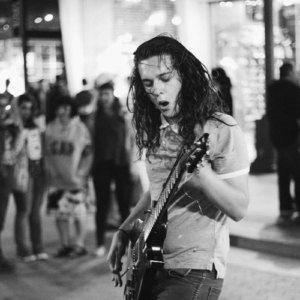
Derek Day is 24 years old and was born and raised in Los Angeles, CA. He infuses the power of rock & roll and multiple other genres (R&B, Soul, Punk and Pop) as he engages and captivates audiences with his natural theatricality. He's on the lead, licky, riffy electric guitar to accompany his gritty, soulful contralto vocals. After getting asked to tour with Living Colour a friendship formed between Day and Vernon and they co-wrote the new single "Click On Me." He's toured the UK, Sweden and the US and shared the stage with Steve Vai, Ted Nugent, Steel Panther, Slash, Lynch Mob and is the band Classless Act with Slash's son London Hudson. Eddie Trunk has said he's a “talented kid, very impressive and a promising, great player...” Learn more at derekdaymusic.com.

